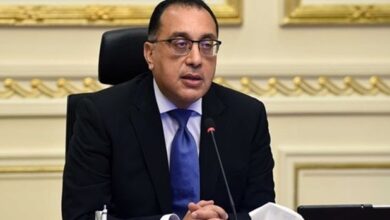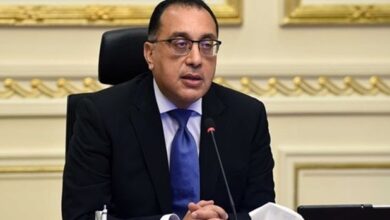A number of policy experts, speaking exclusively to Al-Masry Al-Youm, have dismissed the cabinet reshuffle currently underway as a "patchwork," saying the new government cannot be described as a coalition government.
The experts expect that the new formation will further agitate the public unless a technocratic government is set up to materialize the principles of the revolution. Crucially, the current cabinet encompasses new figures along with old elements affiliated with the ousted regime of former President Hosni Mubarak.
Mustafa Bakry, a former parliamentarian, described the proposed government as a patchwork that aims to conceal the flaws of the old regime of President Mubarak, especially as Ahmed Shafiq, himself a member of the ousted regime, has maintained his post as cabinet minister. Bakry argued that the new government formation will further fuel the crisis.
Bakry said he preferred a technocratic government which, he said, would drive the country toward safety. He added that the purpose behind Shafiq’s continuation in his post is to sustain the Mubarak regime until the last minute, with the hope that the old regime will resurface and sabotage the youth uprising.
Amr al-Shobaky, an expert at Al-Ahram Center for Political and Strategic Studies (ACPSS), said the new government formation will create a sort of disharmony between the government’s head and his new ministers. Al-Shobaky said the primary duty of the new ministers will be to change the policies of the old regime, which, he explained, will be at odds with the stance of Shafiq, who is a product of Mubarak’s rule.
Amr Hashem Rabie, another expert at the Al-Ahram Center, said the new government formation can be described as a merger, rather than a coalition. He said he expects that the youth of the revolution will be frustrated with the new cabinet, making it hard for the government to solve any problems.
According to Rabie, the caretaker government aimed for the cabinet shuffle to placate an angry Egyptian public. ”I therefore demand that the youth form an organized bloc that can engage in a dialogue with the Supreme Council of the Armed Forces, proffer their demands for negotiation, and obligate the council to respond to their call directly," he said.
Rabie said he urged the military council to depose Shafiq, along with Interior Minister Mahmoud Wagdy and Foreign Minister Ahmed Aboul Gheit, in order to restore calm to the street and allow work to resume at public and private institutions. He said he expects the million-man protests to continue until the youth's demands are met.
Meanwhile the former director of Cairo University’s Center for Political Studies, Abdel Moneim al-Mashat, agreed that the new government cannot be termed a coalition, as it fails to include all political groups and independents.




